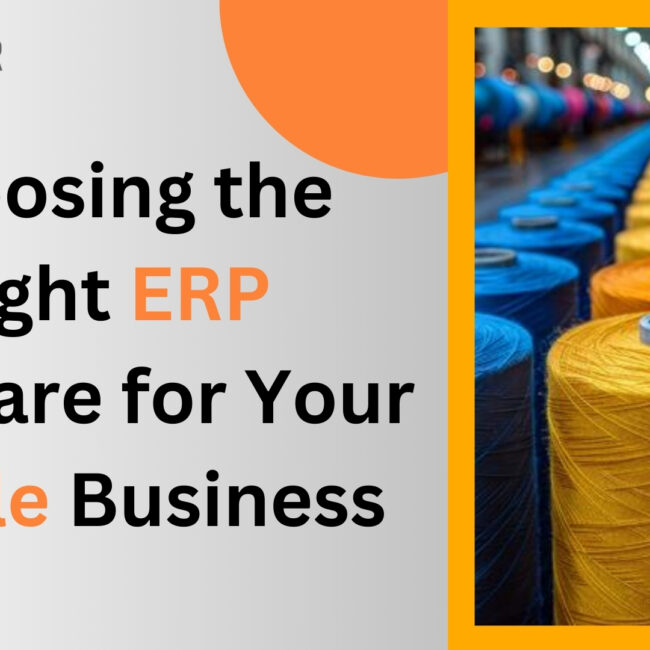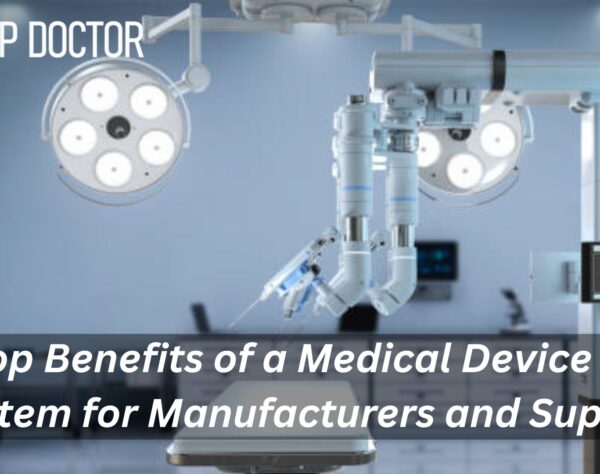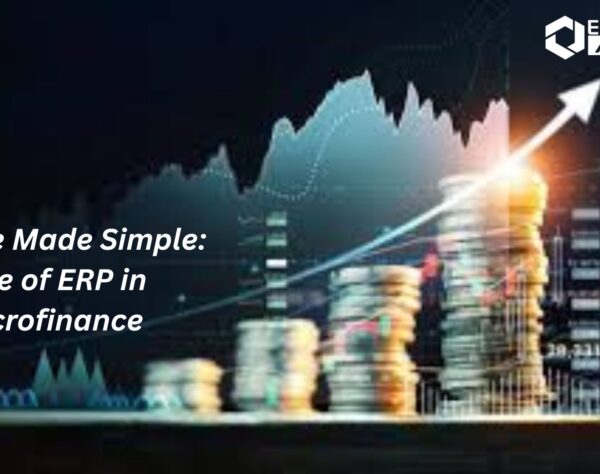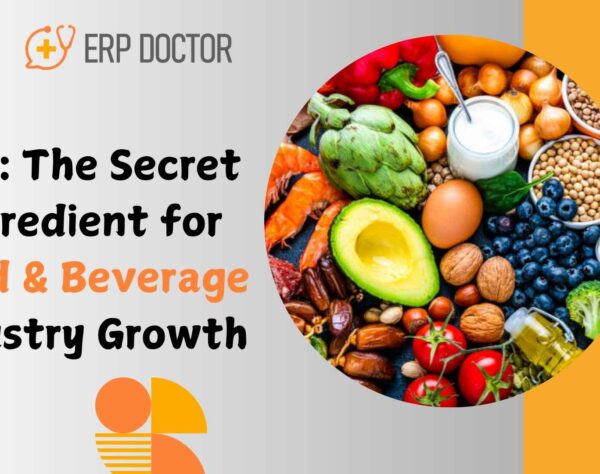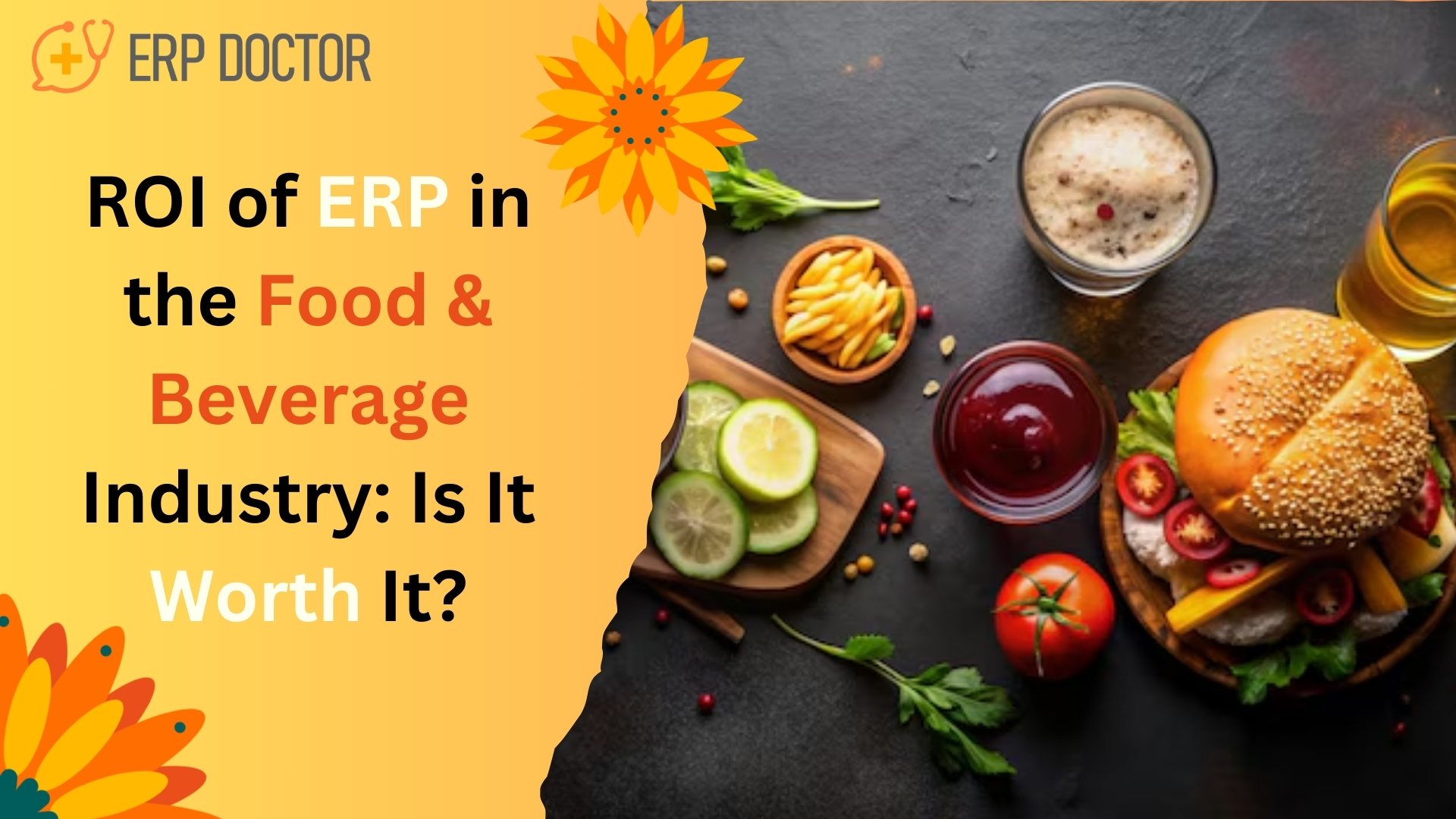
ROI of ERP in the Food & Beverage Industry: Is It Worth It?
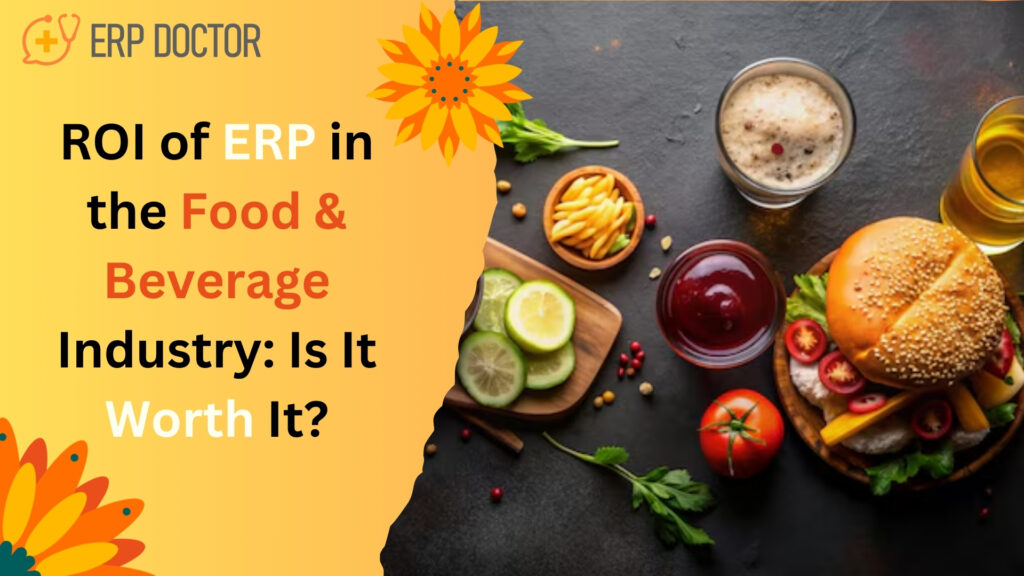
Unlocking Efficiency and Profitability: Is ERP Worth It for Food & Beverage Industry?
The food and beverage industry faces unique challenges, including managing perishable goods, adhering to stringent regulations, and meeting fluctuating consumer demands. Enterprise Resource Planning (ERP) systems offer an integrated solution, promising improved efficiency and profitability. But the key question remains: Is investing in ERP worth it? Let’s dive into how ERP delivers measurable ROI and the factors to consider before implementation. By leveraging ERP, food and beverage businesses can streamline operations, reduce waste, and improve customer satisfaction. Ultimately, a well-implemented ERP system can be a game-changer for businesses looking to stay competitive in this fast-paced industry.
Table of Contents
Understanding ROI in ERP Systems
ROI, or Return on Investment, measures the financial benefits gained relative to the costs of implementing an ERP system. It’s a critical metric to evaluate the success of ERP adoption in any industry, especially one as dynamic as food and beverage.
Factors influencing ROI include:
- Reduction in operational costs
- Improved decision-making through real-time insights
- Enhanced customer satisfaction and loyalty
Benefits of ERP in the Food & Beverage Industry
Enhanced Operational Efficiency
ERP systems streamline workflows by integrating departments such as production, inventory, sales, and accounting. This eliminates data silos and reduces manual errors, leading to faster processes and better coordination.
Improved Inventory Management
Managing perishable goods is critical for the food and beverage sector. ERP systems provide real-time inventory tracking, shelf-life management, and demand forecasting to reduce spoilage and wastage.
Regulatory Compliance
Compliance with FDA, HACCP, and other food safety regulations is non-negotiable. ERP systems automate compliance tracking, ensuring all processes meet regulatory standards and reducing the risk of penalties.
Cost Optimization
ERP systems help in cost control by:
- Reducing overstocking and understocking
- Enhancing production planning
- Lowering labor and operational costs through automation
Calculating ROI for ERP Systems
Key Metrics to Consider
To measure ROI effectively, focus on the following:
- Cost Savings: Reduction in manual labor, inventory wastage, and operational expenses
- Revenue Growth: Increased sales due to better customer experience and faster delivery times
- Efficiency Gains: Time saved through automated processes
Challenges and How to Overcome Them
Common Challenges
- High Initial Costs: ERP systems require significant upfront investment.
- Resistance to Change: Employees may struggle to adapt to new systems.
- Customization Needs: Food and beverage companies often need tailored solutions.
Solutions
- Partner with experienced ERP providers.
- Offer comprehensive training programs.
- Start with scalable ERP solutions to manage costs.
Is ERP Worth It for Your Business?
Investing in ERP is worth it if your food and beverage business:
- Struggles with inventory management
- Faces frequent regulatory challenges
- Needs to improve operational efficiency
While the initial investment may seem daunting, the long-term benefits far outweigh the costs, making ERP a valuable asset for growth and sustainability.
FAQ for ROI from an ERP in the Food & Beverage Industry
Q1: How long does it take to see ROI from an ERP system?
A: Most businesses see ROI within 12-18 months of implementation, though it depends on the size and complexity of the operation.
Q2: Can small food businesses afford ERP systems?
A: Yes, many ERP providers offer scalable solutions tailored to small and medium enterprises.
Q3: How does ERP help with food safety compliance?
A: ERP automates compliance tracking, records management, and reporting to ensure adherence to regulations like HACCP and FDA standards.
Q4: What is the average cost of ERP implementation for the food industry?
A: Costs vary widely but typically range from $50,000 to $500,000, depending on the scale and customization needs.
Q5: How can I measure the success of ERP implementation?
A: Success can be measured through improved KPIs such as reduced wastage, faster order processing, and increased customer satisfaction.
ERP: The Key to Success in Food & Beverage Industry
ERP systems are a game-changer for the food and beverage industry, offering significant ROI through enhanced efficiency, cost savings, and compliance support. While the initial investment may seem substantial, the long-term benefits make ERP an essential tool for sustainable growth. Evaluate your business needs, calculate potential ROI, and take the step toward transformation today.
Ready to streamline your food and beverage business with ERP? Start by assessing your unique needs, choosing the right system, and embarking on a journey toward growth and innovation.
Warning: Trying to access array offset on value of type null in /home/u231991539/domains/erpdoctor.in/public_html/wp-content/plugins/wpforms/includes/class-frontend.php on line 109



